What is LitRPG? [Updated May 2019]
- Edwin McRae
What is LitRPG?
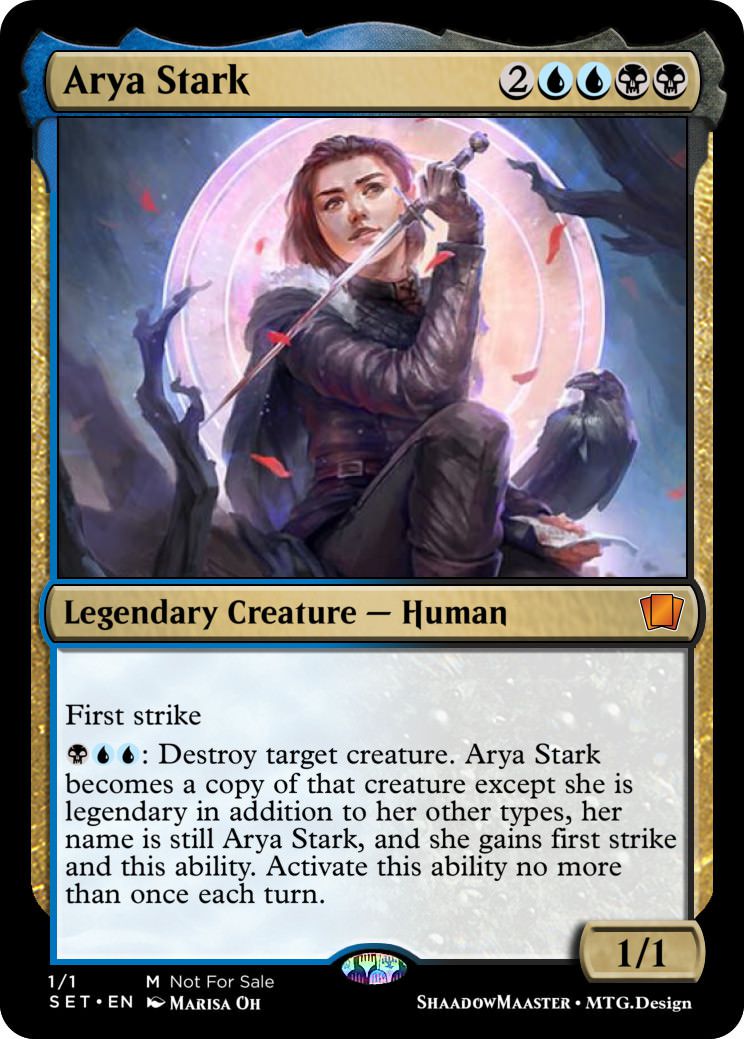
LitRPG aka “literary Role-Playing Game” is a subgenre of fiction where the protagonist spends the bulk of the story playing some form of roleplaying game. For instance, the main character might be a wizard in a High Fantasy session of Dungeons and Dragons, a space pirate in a science-fiction MMORPG or even a zombie in a survival horror RPG. The most common setting is a full-immersion virtual reality RPG where smell, touch and taste are as much a feature as sight and sound.
During their in-game story, the protagonist will interact with other players and/or NPCs (non-player characters), complete quests, gain experience points, build up a repertoire of skills and spells in their chosen character class, and generally do all of the stuff you’d expect to see in an RPG video game or tabletop roleplaying game.
Think of it this way. If Arya Stark was a LitRPG character, she’d be playing a fantasy virtual reality RPG called “Game of Thrones”. Her character class would start out as Level 1 Rogue and she would develop into something like a Level 20 Assassin by the time of The Winds of Winter. Her death prayer would be in her quest log and she would get big experience point payoffs for killing anyone on that list. She would have skills like Dancing Sword and Faceshift, and her inventory would include Needle, the sword given to her by Jon Snow.
Although it’s been around as a genre for over 30 years, LitRPG has really only gained traction during the last 10 years. It started in South Korea, spread to Russia, and is now causing quite a stir in the American indie publishing scene.
LitRPG is like a fictionalized Twitch stream of a gamer playing an RPG like Witcher 3 or Skyrim. Since there are now more people watching video games than playing them in the world, you can probably start to understand the growing popularity of this fledgling genre of fiction
How did you first come across it, and please tell us about your own writing.
I encountered LitRPG completely by accident. I wrote a novella, Stormbane, that was about a woman fighting to protect monsters in a fantasy MMORPG, something similar to World of Warcraft. I was writing for a couple of RPGs at the time and Stormbane was a way for me to express my frustrations about the genre tropes and the negative sides of gamer culture. Ramon Meija of the LitRPG Podcast left a comment on Amazon saying that Stormbane was “almost but not quite LitRPG”. I’d never heard of the term LitRPG before so I searched it out on Amazon and found Aleron Kong’s first book, The Land: Founding: A LitRPG Saga (Chaos Seeds Book 1). I read it and it was love at first sight for me. Not so much with Aleron’s book, but with the genre as a whole.
I loved the combination of science-fiction and fantasy adventures with engaging quest goals and character progression that is clearly tracked by RPG statistics. It all felt so...motivating...and it reminded me of my teenage years on a sheep farm in Southland, planning and writing Dragon Warriors roleplaying adventures that I rather sadly had no-one to play.
Two years and many LitRPG reads later, my partner Rachel Rees and I decided to form Fiction Engine, an Indie Publishing outfit, and embarked on the creation of our own LitRPG novel with me writing and Rachel editing and producing. We drew on our combined love of Westworld and Game of Thrones, my experience as a narrative designer for RPGs like Path of Exile and Bloodgate, and added in my teenage fascination with the Warlock class from Dragon Warriors, a rather gothic fighter-mage type. We endeavoured to create a dark fantasy LitRPG duology, and thus, Reign of Blood was born.
Here’s the blurb for the first book of the duology - Warlock: Reign of Blood.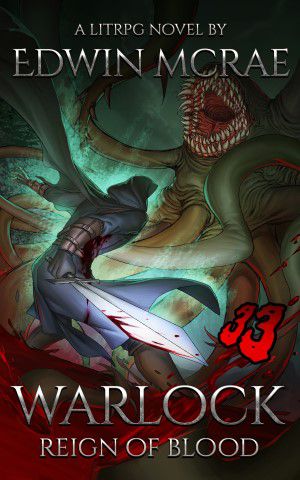
Swords, Spells, Stats and Slaughter
Mark wakes up in a burning town inside a Full Immersion Virtual Reality RPG called Reign of Blood. He flees from the reiver slavers who are abducting the village’s NPCs, only to have an agonizing encounter with the wrong end of a ranger’s arrow. After trying and failing to log out of this painfully realistic game, Mark decides to take up his sword, embrace his new Warlock character class, and help the ranger rescue her people.
The warlock and his hard-nosed ranger are soon joined by a macabre healer, an earth-shaking druid and a talking fortress. But as Mark takes the fight to the reivers, he uncovers an even deadlier threat. Dark magic is spreading into Garland from a long dead city, and the reiver leader has found a way to harness some of that corrupted power for himself.
Level by level, spell by spell, Mark must become the warlock that Garland needs before it falls to the corrupted ambitions of a rising tyrant.
If you love…
- Visceral combat
- Lovecraftian monsters
- Ancient ruins
- Swords and sorcery
- Completely original spells
Warlock is Book 1 in the Chasms of Corruption duology. Executioner is the second book of the pair.
How does LitRPG complement or expand the scope of traditional RPG?
The genre is still young and in a process of finding itself, but there are a few books that are already venturing beyond the simple definition of “gamer plays RPG”. Books like Carrie Summers’ Temple of Sorrow and Matthew Seige’s One in the Gut are starting to question the gamer’s relationship with RPGs and virtual reality, exploring why people immerse themselves in video games, and the impact hard-core gaming has on their lives. Carrie Summers also looks at artificial intelligence, depicting NPCs that are code and graphics underneath but think, feel and act like real people on the surface.
I’m excited by the potential of LitRPG as a medium for dissecting our fascination with games and virtual worlds. Through our gamer and NPC characters, we can explore the relationships between real lives and virtual lives, and gain a better understanding of our own psychology around the human-technology interface. Why do we want to lose ourselves in digital fantasies? How are we motivated by quests and level-ups? What is it about virtual relationships that are so satisfying (or not)? By trying to answer these and many other questions through LitRPG, we can strive to understand the actions and motivations of the hundreds of millions of people who now call themselves “gamer”.
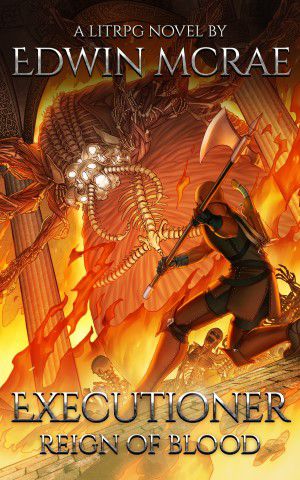 Why would a reader pick up a LitRPG novel (where the adventure has been decided upon by the author) rather than a ‘Pick a Path’ adventure book?
Why would a reader pick up a LitRPG novel (where the adventure has been decided upon by the author) rather than a ‘Pick a Path’ adventure book?
Interestingly, I’m not seeing a lot of crossover between readers of gamebooks and LitRPG readers. Gamebook readers enjoy the mental challenge of decision-making and seem to want agency in the story they’re experiencing. LitRPG readers seem to enjoy the vicarious delights of seeing someone else meet and conquer the challenges. They enjoy seeing battle plans drawn up, reading about the player’s cunning use of skills and spells to defeat a formidable monster. They especially appreciate watching a protagonist level up and build up the power of their character.
But for me, and I think this is the case for many LitRPG readers, it comes down to time and effort. As a father with a demanding career, I simply don’t have the headspace or energy to play as many RPGs as I used to. Games are challenging and time-consuming. They require concentration and stamina that I simply don’t have at the end of the day. By contrast, a good LitRPG novel gives me all the pleasure of a game world, interesting quests, character progression, combat and loot drops, without the grind of having to play the game myself.
When done well, the vicarious experience of a LitRPG like Dungeon Lord can be just as satisfying as the hands-on experience of an RPG like Witcher 3.
Would you say that this genre is largely being read and written by boys and men? Why is that, and do you think it could entice non-readers to pick up a book?
Rachel and I have been researching the LitRPG community through Amazon, Facebook groups, Goodreads and Reddit. So far we’ve found that the vast majority of LitRPG writers are male, and males also form the bulk of the readership. There are notable exceptions, such as Carrie Summers who is a female LitRPG author whose series features a strong, female protagonist. But LitRPG seems to follow the same gender demographics as the RPGs they have been inspired by.
When I wrote for Path of Exile, an action-RPG created here in NZ, the player base of 20 million was 90% male. Other dark, grind-focused RPGs such as Diablo 3 and Grim Dawn would likely show similar numbers. Other RPG brands like Witcher and Dragon Age have been more popular with female gamers, but those player bases still have a strong male bias. In fact, most sources I’ve seen show a roughly 60/40 split between male and female players of MMORPGs. So just as the RPG world is male dominated, so is the LitRPG world.
And why would a gamer guy who doesn’t read much pick up a LitRPG? Once you dodge around the obvious but dubious appeal of the harem LitRPG titles that plague the genre, there are three main reasons that I can think of for picking up a LitRPG novel.
Plot over Description
LitRPGs tend to be written as page-turners. They use accessible language rather than ‘fancy prose’. They’re high in action, focusing on combat and legendary executions of physical, magical and technological prowess. They seldom dwell on long descriptions of characters, environments and inner thoughts unless it’s about the planning of a character build, the abilities of an epic weapon or the intricacies of battle tactics.
Empowerment
Just as RPGs are about building up a powerful character, LitRPGs are about protagonists who lack personal power in their real lives but who gain in confidence and agency in their virtual lives. A great example is Dungeon Lord by Hugo Huesca. A young man works at a job he hates and is bullied by his boss. But he’s an awesome gamer and is offered the chance by a dark god to become a Dungeon Lord in a full-immersion RPG. It’s real “zero to hero” stuff, something I think we guys are hard-wired to enjoy.
Motivation
RPGs have gotten extremely good at motivating players through quest goals, level-ups, combat
achievements and loot drops. LitRPGs have all of these elements, and the result is very similar. You experience the same dopamine-fueled enjoyment when you read about an epic quest line as you do actually playing an epic quest line. You feel that same thrill when the main character scores a kickass sword or slays some tentacle monstrosity from the netherworlds. As a gamer guy, if you’ve ever enjoyed watching a playthrough of an RPG, you’ll enjoy reading a LitRPG.
Any particular LitRPG titles or authors to look out for?
Warlock: Reign of Blood from Fiction Engine, of course! ;-P
I’ve mentioned a number of awesome LitRPG books already, but this last one was the most enjoyable for me. Restart by Dan Sugralinov. Instead of being transported into an RPG, the protag ends up with an RPG interface inside his head. He’s a Russian gamer and his real life is falling apart. Via his RPG UI, he takes on real world quests (Get a Job), levels up his actual abilities (Persuasion) and gains experience points and level ups that he can use to improve himself (+1 Perception). He gets fit, founds a successful career, builds a community of friends and allies, and even finds love. And it all plays out as an RPG.
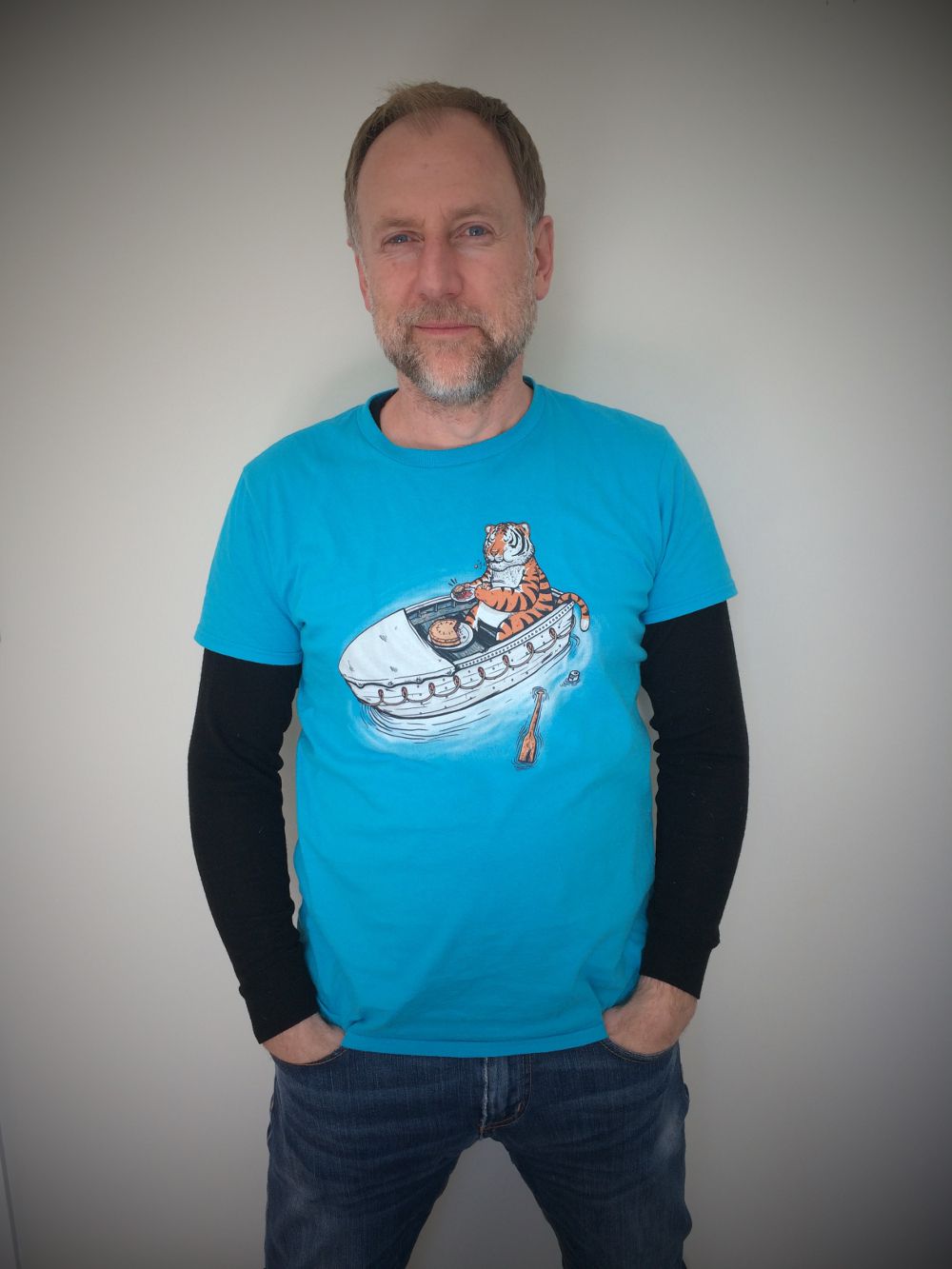 About Edwin McRae
About Edwin McRae
I'm a gamedev-turned-LitRPG author. After doing narrative design for RPGs for nine years (as of May 2019), I'm now following my passion and writing books. For me LitRPG is a perfect match between interest and experience. I can write the kind of stories I've always enjoyed and fill them with the sort of game mechanics that quicken the blood through my gamer veins.
To see my full range of books and interactive stories, click here!
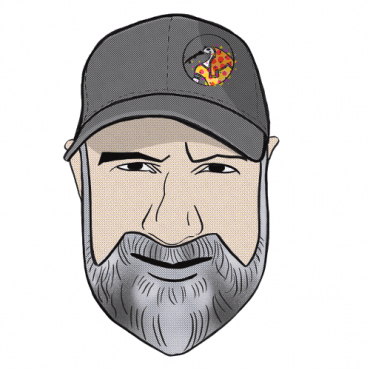
About Edwin McRae
Edwin is a narrative consultant and mentor for the games industry.
